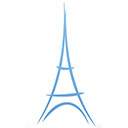REVISION SURGERY
Some patients, who have already had bariatric surgery, require a second procedure to get things right.
The most common indications for revision surgery are:
- Gastroesophageal reflux after restrictive surgery
- Failure to lose weight or weight regain, despite regular follow-up
- Complications related to gastric banding such as upward migration, erosion of the gastric wall or dilation of the esophagus (megaoesophagus)
- Nutritional deficiencies due to malabsorption
DISABLING ACID REFLUX
Gastroesophageal reflux is a fairly common side effect after restrictive surgery (gastric band and sleeve).
The cause-effect relationship is rather articulated. For example, some patients who suffered from reflux before surgery may see an improvement after a sleeve because their symptoms were the result of a small hiatal hernia (which can be repaired during the sleeve procedure) and / or increased endo-abdominal pressure (which will decrease due to weight loss).
Some patients, on the other hand, will see their symptoms worsen or appear after surgery. In most cases the course of action consists of anti-acid tablets and endoscopic check-ups. If the symptomatology persists despite the therapy and / or the inner wall of the esophagus is damaged by acidity, revision surgery is indicated.
The benchmark procedure in this case is conversion to a Roux-en-Y By-Pass, because in addition to promoting further weight loss, this procedure protects the esophagus from gastric reflux.
After an Omega By-Pass (also called mini By-Pass), the patient may be bothered by bile reflux secondary to the type of reconstruction which is particular to this procedure. In this case too, the transformation into Roux-en Y By-Pass remedies this problem.
WEIGHT LOSS FAILURE AND WEIGHT REGAIN
This problem can arise for several reasons: lack of follow-up in the post-operative period, poor eating habits, dilation of the neo-stomach, in the event of a sleeve or of the gastric pouch and of the communication (anastomosis) between the latter and the intestinal loop, in case of a bypass, finally, technical failure of the first operation.
Before any revision surgery decision, nutritional supervision is fundamental and volumetric scanner and endoscopy examinations will be carried out to understand the exact causes of the first failure and to propose an alternative technique which proves effective depending on each particular case.
After a sleeve, depending on the result of the gastric volume exam, a re-sleeve or the transformation of the sleeve into bypass can be offered, the last option being the most preferred in our center.
After a bypass, a reduction of the gastric pocket and possibly a repair of the anastomosis (communication) with the intestine can be performed.
COMPLICATIONS RELATED TO A GASTRIC BAND
After the removal of the gastric band, due to complications or failure to lose weight, different procedures can be offered depending on the patient: sleeve, bypass or bilio-pancreatic bypass. In all cases, an interval of two to three months is observed between the two procedures. The reason being to allow the regression of the inflammation linked to the presence of the band (foreign body) and to make the procedure safer.
DISABLING NUTRITIONAL DEFICIENCIES DUE TO MALABSORPTION
Sometimes, despite proper nutritional monitoring, certain malabsorptive procedures (bilio-pancreatic bypass, Omega bypass and, to a lesser extent, gastric Roux-en-Y bypass) lead to a state of nutritional deficiency due to excessive malabsorption. This is often the result a bile loop (digestive loop that does not receive food) which is too long compared to the total length of the intestine. The revision will therefore consist in a repair of the length of the different loops in order to reduce the malabsorptive effect or, in the most serious cases, a complete reversion and a return to the previous state before the procedure.
⇒ Also see (click on) : QUESTION / ANSWER : REVISION SURGERY
♦To make an appointment with Dr. Bruto Randone, Digestive and Bariatric Surgeon, at the Clinique Internationale du Parc Monceau, 21 Rue de Chazelles, 75017 Paris, France, or at the Clinique Bizet, 23 Rue Georges Bizet, 75116 Paris, France, click on Contact
